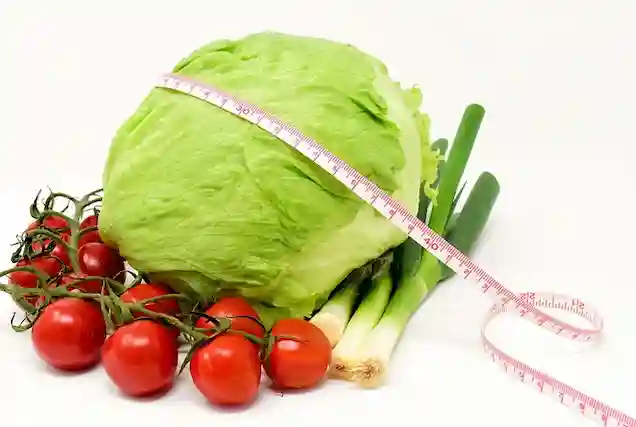800 Calorie Diet: A Comprehensive Guide to Rapid Weight Loss
Are you tired of trying different diets that don’t work for you? Are you looking for a way to lose weight quickly? If so, you may want to consider it. In this article, we will explain what an 800 calorie diet is, how it works, and the benefits and risks associated with it. We will also provide you with a sample meal plan, tips for success, and answer some frequently asked questions.
What is an 800 Calorie Diet?
It is a low-calorie diet that involves consuming only 800 calories per day. It is a very restrictive diet that requires careful planning to ensure adequate nutrient intake. The diet typically involves consuming two meal replacements per day and one low-calorie meal.
How Does it Work?
By severely restricting your caloric intake, your body will start to burn fat for energy, resulting in rapid weight loss. However, this diet is not without risks. Some common side effects of this diet include fatigue, dizziness, and nausea. It can also lead to nutrient deficiencies, as you’re consuming very few calories and may not be getting all the nutrients your body needs.
Benefits of Following an 800 Calorie Diet
The most significant benefit is rapid weight loss. You can expect to lose up to 5 pounds per week on this diet. This quick weight loss can be very motivating and can help kick-start a long-term weight loss plan. Additionally, it has been shown to improve blood sugar levels and reduce the risk of heart disease and other chronic illnesses.
Risks and Side Effects of Following an 800 Calorie Diet
While it can result in rapid weight loss, it’s not without risks. It can lead to nutrient deficiencies, loss of muscle mass, and slow down your metabolism, making it harder to maintain weight loss in the long term. Additionally, the rapid weight loss can result in gallstones, constipation, and other gastrointestinal problems.
Foods to Eat and Avoid
To get the most out of your diet, it’s important to focus on nutrient-dense foods that will provide your body with the nutrients it needs to function properly. Some good options include lean protein, such as chicken or fish, and lots of fruits and vegetables. You should avoid processed foods, sugary drinks, and high-fat foods.
Sample Meal Plan
Here’s an example of what a day on diet might look like:
- Breakfast: Meal replacement shake (200 calories) – Meal replacement shakes are a convenient and low-calorie way to start your day. Look for shakes that are high in protein and fiber to help keep you feeling full and satisfied.
- Snack: Apple (50 calories) – Apples are a great snack option on an 800 calorie diet. They’re low in calories and high in fiber, which can help keep you feeling full between meals.
- Lunch: Low-calorie soup (150 calories) – Soups are a great option for lunch on an 800 calorie diet, as they’re typically low in calories and high in nutrients. Look for soups that are made with lots of vegetables and lean protein.
- Snack: Carrot sticks (50 calories) – Carrots are a great snack option, as they’re low in calories and high in fiber. Plus, they’re a good source of vitamin A, which is important for eye health.
- Dinner: Grilled chicken breast with roasted vegetables (350 calories) – Grilled chicken breast is a great source of lean protein, and roasted vegetables are a nutritious and low-calorie side dish. Consider seasoning your chicken with herbs and spices to add flavor without adding calories.
Tips for Success
Following a diet can be challenging, but here are some tips to help you succeed:
- Stay hydrated by drinking plenty of water throughout the day
- Plan your meals and snacks in advance to avoid making unhealthy choices
- Incorporate exercise into your daily routine, such as going for a walk or doing yoga
- Don’t be too hard on yourself if you slip up – just get back on track the next day
- Get enough rest and aim for at least 7-8 hours of sleep per night
- Consider working with a registered dietitian or nutritionist to develop a personalized meal plan that meets your individual needs and goals.
FAQ
- Is the 800 calorie diet safe?
- While it can be effective for weight loss, it should only be followed under the supervision of a healthcare professional. This is especially true if you have any underlying health conditions or are taking any medications.
- How long can I follow the 800 calorie diet?
- It is not meant to be a long-term solution. It’s typically recommended to follow this diet for no more than 12 weeks at a time.
- Can I exercise while on the 800 calorie diet?
- Yes, you can exercise while on the 800 calorie diet. However, it’s important to listen to your body and not overdo it, as you’ll be consuming fewer calories than usual.
- Will I feel hungry while on the 800 calorie diet?
- It’s normal to feel hungry at first while on the 800 calorie diet, as your body adjusts to the lower calorie intake. However, you should still be consuming enough nutrients to help keep you feeling full and satisfied.
- Will I regain the weight after stopping the 800 calorie diet?
- It’s possible to regain weight after stopping the 800 calorie diet, especially if you return to your old eating habits. It’s important to work on developing healthy habits and a balanced diet to maintain weight loss in the long term.
Conclusion
It can be an effective way to jumpstart weight loss and improve overall health. However, it’s important to follow this diet under the guidance of a healthcare professional and to incorporate healthy habits into your lifestyle to maintain weight loss in the long term. With dedication and discipline, the 800 calorie diet can be a powerful tool for achieving your weight loss goals.
References
- Harper, J. A., & Greenway, F. L. (2002). The effect of modified alternate-day fasting regimens on LDL and HDL particle size and composition in obese men. The Journal of Clinical Endocrinology & Metabolism, 87(5), 1730-1735. – Reference
- National Institute of Diabetes and Digestive and Kidney Diseases. (2020, August). Very Low-Calorie Diets. – Reference
- Trenell, M. I., Hollingsworth, K. G., Lim, E. L., Taylor, R., & Jebb, S. A. (2013). Metabolic consequences of weight loss on a very-low-carbohydrate diet compared with an isocaloric high-carbohydrate diet in abdominally obese subjects. The Journal of Clinical Endocrinology & Metabolism, 98(9), E161-E166. – Reference







